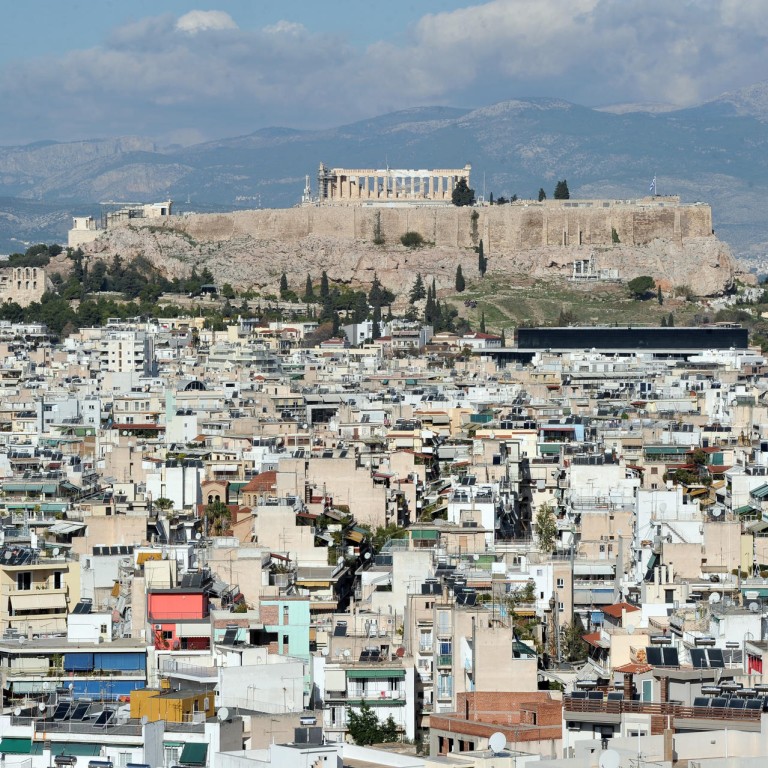
Many Greeks outraged over plans to sell architectural gems
Government moves to unload architectural gems to help pay down debt
Greece's cultural gems have become the focus of renewed protest on the streets of Athens following the cash-strapped government's announcement of plans to include prime properties around the Acropolis and other landmark buildings in its privatisation programme.

"The government is constantly trying to convey the message that the economy is a success story but in reality that is not the case at all," said prominent leftwing campaigner Petros Constantinou. "The decision to put public buildings up for sale is not just proof that they are nowhere near reaching targets but plain wrong when they could be exploited for public benefit."
Under immense pressure to enact reforms for the release of a long overdue €10.1 billion (HK$108.92 billion) aid instalment from international creditors, Prime Minister Antonis Samaras' fragile two-party coalition handed the real estate to the fund overseeing the sale of state assets (Taiped) last week.
Among the properties are refugee tenement blocks built to put up Greeks fleeing the Greco-Turkish war in 1922 and culture ministry offices housed in neo-classical buildings in the picturesque Plaka district at the foot of the Acropolis that were erected shortly after the establishment of the modern Greek state. Both are widely viewed as architectural gems.
The move follows an equally controversial decision by the country's powerful archaeological council to allow two of Athens' most significant ancient sites - the Stoa of Attalos in the ancient agora and Panathenaic Stadium - to be leased to companies for private functions.
Greece's privatisation programme has been problem-plagued from the day bankrupt Athens became the ward of the EU, European Central Bank and International Monetary Fund in May 2010. Protests have been such that the drive - originally brandished as Europe's most ambitious privatisation programme ever - has been scaled back from raising €50 billion by nex year to €11 billion by 2016.
The decision to sell off public assets invested with such historic significance has not only angered anti-austerity leftists; it has also raised howls of protest from reform-minded conservatives.
"The rush to sell these assets...raises serious questions [as to] whether they are being purposely sold on the cheap in order to speed up the privatisation process," wrote Nikos Xydakis in the conservative daily Kathimerini, lamenting the decision to sell off properties imbued with such symbolic value around the Acropolis.
"Will the outrageous proposal put forward by the German magazine Bild suggesting that Greece should sell or rent its islands to cut its debt [next] come to pass?" he asked.
